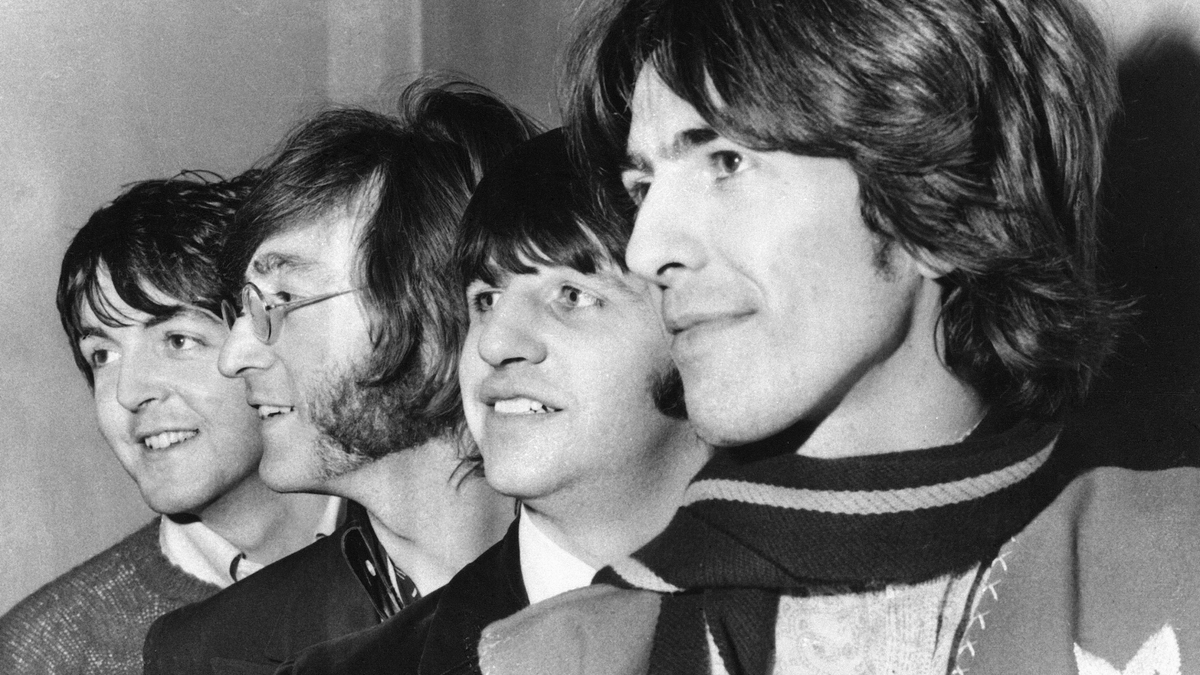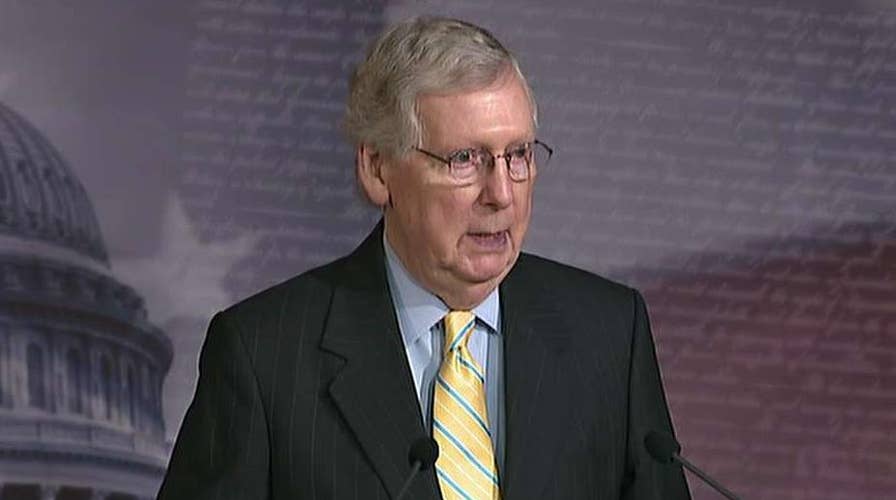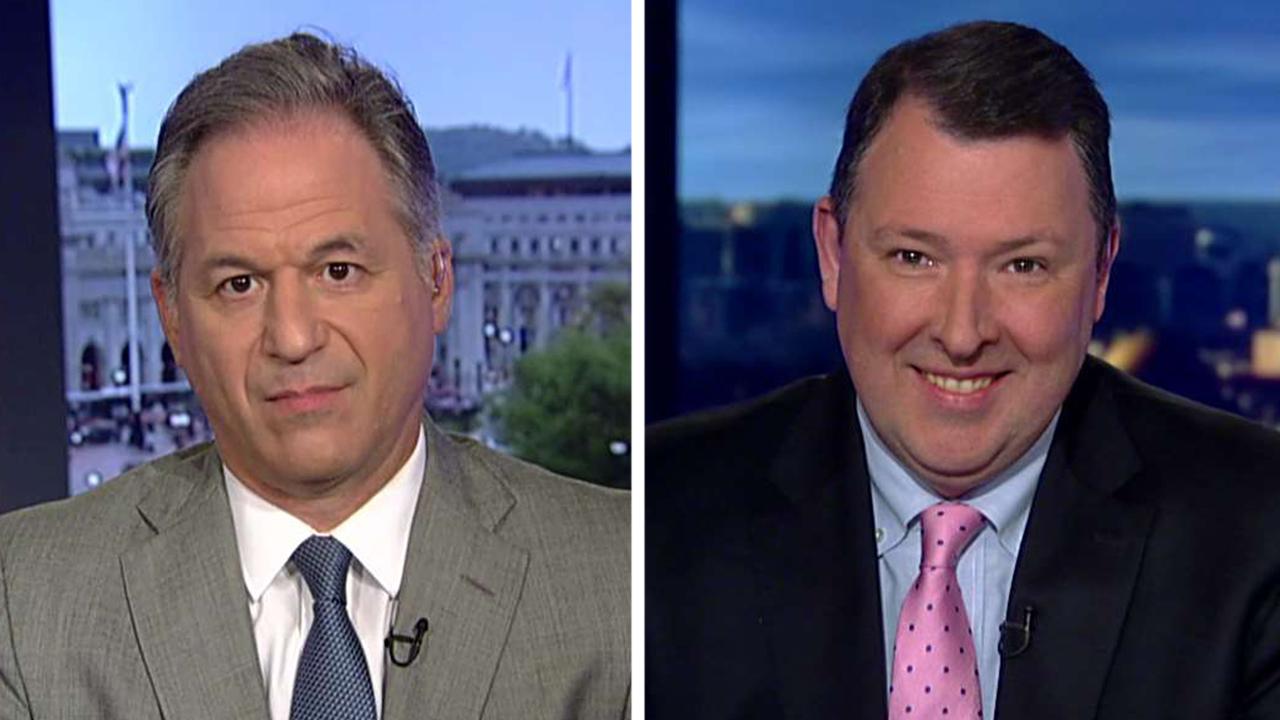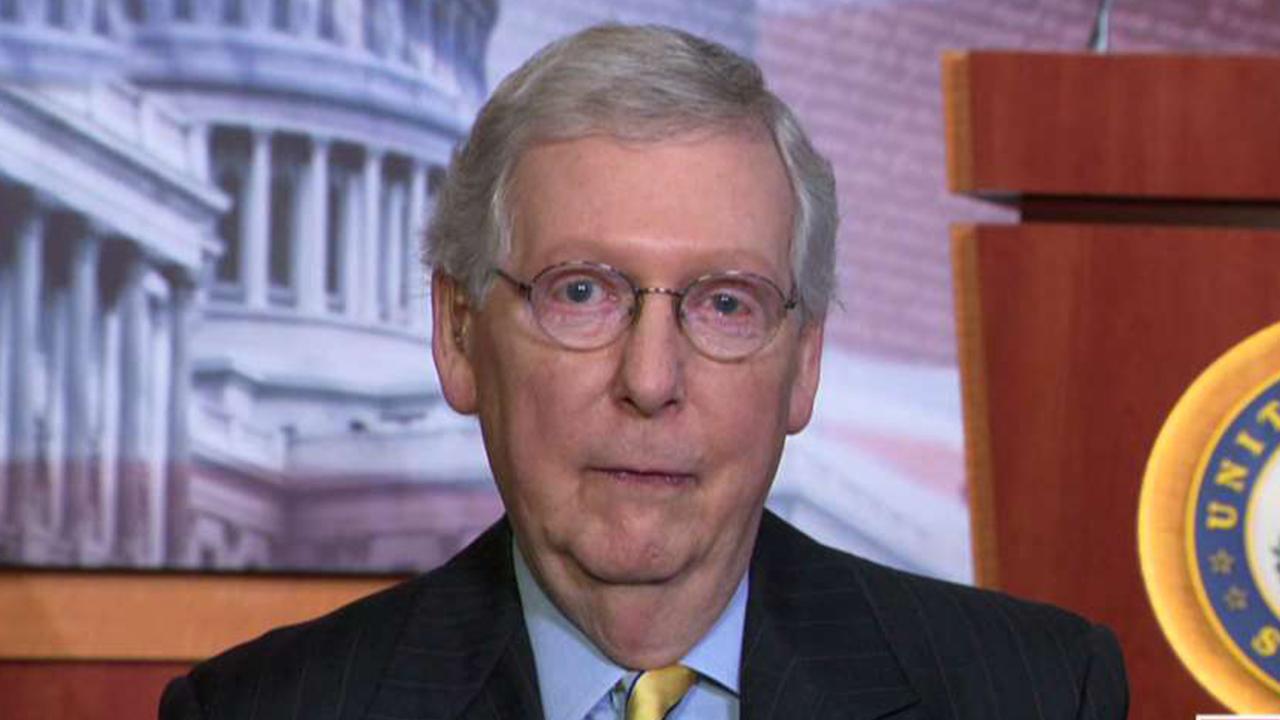Longest vote in Senate history examines Trump's authority to strike Iran
Senate presidential candidates are returning from the Miami primary debates to cast their votes on a measure requiring President Trump to get congressional approval before taking military action against Iran; Mike Emanuel reports.
The Beatles' avant-garde "Revolution Number 9" clocks in as the longest work in the Fab Four's canon.
It's an eight-minute, 22-second sound portrait; an amalgamated, studio-driven cacophony of chaos. "Revolution Number 9" is a medley of the spoken word. Musique concrète. Audio tracks played backward, music sped up, music slowed down, pitch control alterations, cooing babies and snatches of symphonies from Beethoven and Schumann appear momentarily – only to dissolve as if they were never really there. There are choral performances and dollops of sound effects. The chanting of an American football crowd. Someone tuning a shortwave radio.
Punctuating the opus is the ubiquitous, sonorous repetition of a man with a British accent saying "Number nine. Number nine. Number nine." Play the line backwards and it sounds as though the voice is eerily intoning: "Turn me on, dead man." (Note: it only sounds this way if uttered with a British accent.)

"I read the news today, oh boy." (AP)
Critics have never quite known what to make of "Revolution Number 9." It just consumes time. It's no melodic ditty like "She Loves You." It's not a "story" song like "Eleanor Rigby." It's not a "think" piece like "A Day in the Life" or "I Am the Walrus." The most generous praise bestowed on the eclectic track is that it's just bizarre. An abstract painting that drips out of the loudspeakers – and doesn't really transport you anywhere. You listen once or twice. And if you're a fan of the Beatles, you're back to listening to "Come Together" or "While My Guitar Gently Weeps."
The U.S. Senate had its own production of "Revolution Number 9" on Friday, convening at 5 a.m. to conduct what everyone anticipated would be the longest roll call vote in its history.
The subject matter was interesting. But like the Beatles song, it never really took you anywhere.
Sens. Tom Udall, D-N.M., and Tim Kaine, D-Va., secured an agreement with Senate Majority Leader Mitch McConnell, R-Ky., to start the strange, pre-dawn vote. The plan crafted by Udall and Kaine would bar the use of U.S. military force against Iran unless Congress expressly approved a separate authorization for armed intervention. Udall, Kaine and others have long pushed for fellow lawmakers to re-assert the "war powers" granted to Congress in the Constitution. Three presidential administrations have used a 2001 authorization to attack Afghanistan and a 2002 authorization to invade Iraq as sufficient legislative license to deploy U.S. military power elsewhere. The same was true when the Trump Administration pondered bombing Iran.
The Senate approved the annual defense bill last week. However, part of the agreement for the Senate to consider the Udall-Kaine plan allowed senators to retroactively amend the defense measure with the Iran military prohibition – if it passed. However, attaching the Iran provision after the fact wouldn't be subject to a simple majority vote, but would require 60 votes.
So why did the Senate meet before the cockcrow last week? Several reasons.
Some lawmakers were trying to escape overseas on official Congressional delegation visits, known in Congress-speak as "CODELs." Other lawmakers hoped to catch the earliest flight possible to head home for the July 4 recess. So they aimed to vote early and head to the airport. Then, there were the Democratic senators seeking the presidency. Democratic presidential hopefuls just wrapped up two nights of debates in Florida late Thursday. So the Senate set an agreement to start really early on Friday morning to accommodate the early birds – and stick around really late for the stragglers.
That meant the Senate was likely to establish a new record for the longest roll call vote in history. In February 2009, the Senate kept a vote open for five hours to approve President Obama's stimulus package. The vote of Sen. Sherrod Brown, D-Ohio, was needed. But Brown's mother had just passed away. So the Senate kept the vote open for Brown to fly to Washington – and then return to Cleveland.
That was the longest vote in Senate history – until last year.
On Dec. 21, 2018, the Senate kept a vote open for five hours and 20 minutes to start debate on a bill to avoid a government shutdown. It did little good since the government shuttered later that night and remained closed for 35 days.
SENATE FAILS TO APPROVE IRAN RESOLUTION AFTER LONGEST VOTE IN CHAMBER'S HISTORY
On Friday, the sun rose in Washington, at 5:45 a.m. But the Senate had already been at it for 45 minutes. Sen. Ron Johnson, R-Wis., gaveled the body to order. Minority Whip Dick Durbin, D-Ill., cast the first ballot. He was soon joined by the aforementioned Johnson along with Sens. Jon Tester, D-Mont., Jeff Merkley, D-Ore., Gary Peters, D-Mich., Martha McSally, R-Ariz., James Lankford, R-Okla., and Dan Sullivan, R-Ak.
The outcome of the vote was a fait accompli. The Senate couldn't score the 60 yeas required to update the defense bill, so it sat in a freeze for most of the day. Every so often, a senator would materialize in the rear of the chamber and signal thumbs up or thumbs down.
The Senate established the new record for the longevity of a vote at 10:23 a.m. But the day was far from over.
Just before 11 a.m., presiding Sen. Josh Hawley, R-Mo., unexpectedly broke the silence by loudly asking into the microphone from the dais "are there any senators wishing to vote or to change their vote?" Of course, there were lots of senators yet to vote. But no one was there to respond to Hawley.
A few hours later, Sens. Bernie Sanders, I-Vt., Kamala Harris, D-Calif., and Kirsten Gillibrand, D-N.Y., rolled in from Florida to cast their ballots. But the vote continued, going on for so long that senators could have driven from Florida to Washington, had they left right after the debate.
It's customary that a senator from the majority party presides over the Senate. It had been years since a member of the minority party presided over a session of either the House or Senate. But attrition took its toll on Friday. After a while, there were no more Republicans around to sit on the dais to command the Senate. Both Kaine and Sen. Jack Reed, D-R.I., took turns presiding.
In fact, Kaine was in the chair when Sen. Michael Bennet, D-Colo., another presidential hopeful, entered the chamber and cast his ballot at 3:10 p.m. Kaine immediately declared the vote closed. The measure he'd co-created with Udall scored 50 yeas and 40 nays but fell short of the 60-vote threshold for adoption. Time of vote: 10 hours and eight minutes.
CLICK HERE TO GET THE FOX NEWS APP
So this exercise was a little bit like "Revolution Number 9." The Senate really didn't do much despite the early morning theatrics. Bleary-eyed senators cast their ballots and left with little fanfare. A few reporters chased the presidential candidates who came back to vote but even that yielded little news.
This experimental legislative contrivance was hardly a Senate oeuvre. Music sped up. Music sped down. Pitch control alterations. Everything but musical ribbons from Beethoven and Schumann appeared briefly. It didn't really change anything.
And in the end, Senate watchers will remember this vote the way music historians remember "Revolution Number 9": A strange cut, but of little significance compared to "Hey Jude" or "Hard Day’s Night."















































